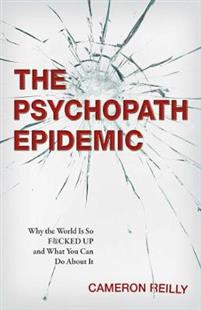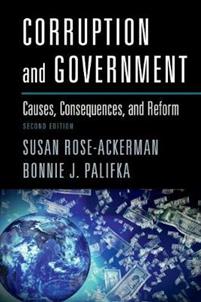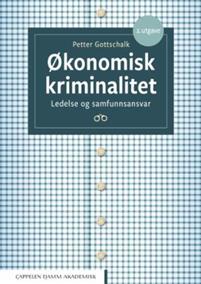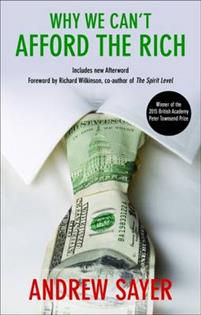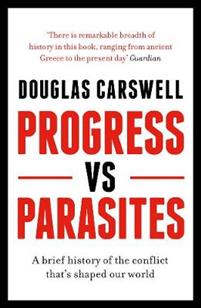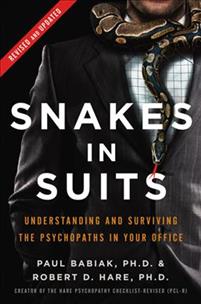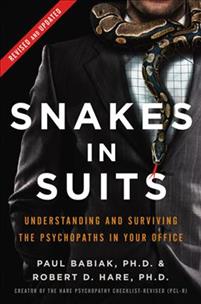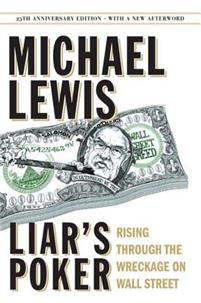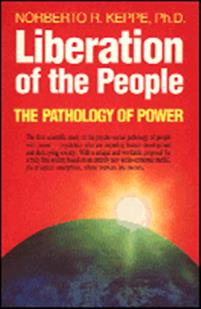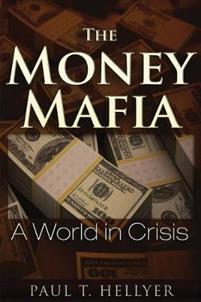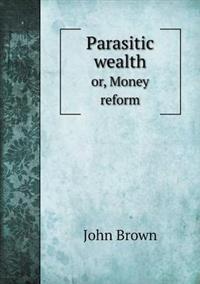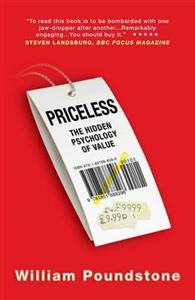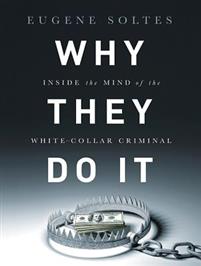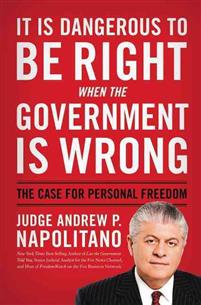“So what makes someone a psychopath? According to Robert Hare’s widely used Psychopath Checklist test (known as the PCL-R),23 psychopaths tend to display many of the following traits:
Glib and superficial charm
Grandiose (exaggeratedly high) estimation of self
Need for stimulation
Pathological lying
Cunning and manipulativeness
Lack of remorse or guilt
Shallow affect (superficial emotional responsiveness)
Callousness and lack of empathy
Parasitic lifestyle
Poor behavioral controls
Sexual promiscuity
Early behavior problems
Lack of realistic long-term goals
Impulsivity
Irresponsibility
Failure to accept responsibility for own actions
Many short-term marital relationships
Juvenile delinquency
Revocation of conditional release
Criminal versatility.
When sitting the PCL-R test, a subject is ranked against each of the twenty characteristics. They get a score of 0, 1, or 2, based on how much they display each characteristic. The higher the score, the more likely the subject is a psychopath.
Why the lack of empathy? According to recent fMRI studies on the brains of psychopaths, their inability to empathize with others seems to result from a problem with the amygdala, the part of the brain that deals with emotions, memory, and decision-making.
Instead of the amygdala lighting up when a psychopath imagines causing someone else pain (as it does when they consider their own pain), there was an increased response in the ventral striatum, part of the brain that manages our “reward system.” In other words, when thinking about causing others pain, a psychopath might feel pleasure instead of remorse.
Other long-term studies on children indicate that these malfunctions in the brains of future psychopaths can be detected as early as three years of age, suggesting psychopaths are born and not made.
Now, of course I don’t want to imply that all managers or business owners are psychopaths. That would be ridiculous. There are obviously some “very fine people” in the ranks of the elite.
So how do we tell the very fine people from the psychopaths?
I think it comes down to looking at their behavior and the actions of the companies they run. If we see evidence of psychopathic behavior, e.g., a lack of empathy towards customers and staff and society as a whole, a desire for power, criminal activity without remorse, the failure to accept responsibility, then we have good reason to suspect psychopaths are involved.
It’s hard to deny that the character traits of psychopaths—in particular the charm, the grandiose self-opinion, the willingness to lie, the cunning, the lack of remorse and guilt, and the failure to accept responsibility (blaming problems on other departments, or on previous management, or their own staff, etc.)—might help them climb the ranks inside certain organizations.
People who have a more realistic appreciation of their own weaknesses and are willing to admit them, who aren’t willing to lie and don’t like making decisions that hurt other people, probably aren’t going to climb the ladder as easily. And if some managers are indeed psychopaths, it makes sense that society needs to be protected from their worst instincts.
How many of us would feel comfortable taking home 300 times the salary of our colleagues at work? It takes a special kind of person to accept that their value is 300 times that of most of the people they work with. It takes a sense of grandiosity, an unrealistic sense of superiority, a sustained view of oneself as better than others. It takes a narcissist psychopath.
Of course, psychopaths genuinely think that they deserve these benefits. They have a thousand different ways to justify it to themselves.
“I worked hard to get where I am.”
“I made my own success.”
“I did things that others were not willing to do in order to succeed.”
And while some of these things might be true, it still belies an underlying narcissism.
One downside of being a psychopath today is that, since the rise of modern mass media in the twentieth century, it has become harder for the 1 percent to get away with certain kinds of behavior. Even if they control more power than the rest of society, there are always ninety-nine of us to every one of them, so they need to play their cards carefully.
Gone are the days when they had private armies and fortified castles to hide in. The people’s revolutions around the world during the eighteenth, nineteenth, and twentieth centuries were examples of what can happen when the majority of the majority of the population get fed up with being oppressed by a wealthy minority.
Why do we let them get and stay in positions of power? Why don’t we—the 99 percent—do a better job of preventing these psychopaths from taking power?
The method they use to get and stay on top of the power pyramid is by fighting a war. It’s not the “War on Terror,” the “War on Drugs,” or even the “War on Christmas.” There’s a much more significant war going on, but it doesn’t get talked about in polite company because, like Fight Club, the first rule of this war is that you don’t talk about it. If the general public became too aware of it, it would stop being effective.
Instead, our leaders distract us by focusing our attention on the other wars, real and imaginary. They distract us with televised sport, reality shows, presidential tweets, celebrity gossip, and two-year-long election circuses. They won’t talk about this other war because it isn’t in their best interests to make the public aware of it. This other war has been going on, in its present form, since the rise of modern democracies, and billions of dollars are spent on it every year—yet it gets almost zero coverage in the nightly news or from our elected leaders.
The war I’m talking about is the “Propaganda War.” It’s a war on your mind, a battle to control how you think, feel, and act regarding the political and economic issues of the day. It is being fought daily on the battlegrounds of television, talk-back radio, newspapers, films, magazines, books, and, now, the internet.
Of course the psychopaths weren’t going to just give up their power. They had to find new ways of staying in control of how the masses think. In days gone by they used religion to control the masses—wealthy clergy (to get high ranking clerical jobs in the Middle Ages you often had to buy your way in) preaching from the pulpit that being poor was God’s will and the people should just suck it up and wait for their rewards in the afterlife.
When that slowly stopped working around the time of The Enlightenment, and revolutions started breaking out all over the place, the elite became experts at manipulating our thinking with political propaganda and distraction theatrics. We’ve been exposed to propaganda for so long that many of us aren’t even very conscious of it. It’s just part of the background noise that we’ve grown up with.
Think of it like the laugh track on a sitcom—it’s always been there, telling us when to laugh and what to think, how to vote and why we should go to war, what to focus on and what to ignore. Most of us are so used to it, we don’t even notice, let alone think much about it, and that’s precisely what the establishment are counting on—that you’ll accept their conditioning without questioning it or fighting it.
They are counting on the fact that the average person is too tired after working a long day or feeling too helpless to take back control of their thinking. They are counting on us just sitting in front of the television (or Netflix or Fortnite) and letting it wash over us, every night and every day, for the rest of our lives. They will tell us how to think, how to vote, what to buy, and constantly keep us scared about the enemy du jour who is coming to destroy our way of life, or about looming pandemics, natural disasters, and our financial future.
Therefore, the psychopaths who make up the ruling class stay dominant and prosperous and in control of the engines of our economies. Thanks to a century of propaganda, we call them “capitalists,” “titans of industry,” or “CEO” instead of psychopaths—because it sounds far more respectable.
Capitalism may have lifted the standard of living of millions of people around the world, but it has also caused its share of damage. It’s not a binary situation; capitalism doesn’t have to be either all good or all bad. The same is true, by the way, of socialism, Christianity, and Hollywood films. Most things lie on a spectrum, providing both positives and negatives. Hopefully, they provide a net positive, but sometimes it’s difficult to tell, especially when the media provides a constant narrative that only focuses on one side of the equation.
As I live in a country that is a capitalist democracy, I think it’s vital to understand the weaknesses as well as the strengths of our socioeconomic model, especially in terms of how easy it might end up run by people with psychopathic tendencies.
In Western countries, the forces of capitalism, controlled by psychopaths, keep the majority of the population distracted, broke, scared, and politically disempowered. That prevents them from launching a revolution or agitating for political and economic reform.
Through a simple framework of overlapping interests, capitalism allows a small number of psychopaths to maintain control over the rest of the population, creating a series of rippling negative effects.
Hardly a day goes by when we aren’t presented with evidence that another influential organization has led us astray in one way or another. Like the lies of Donald Trump, it’s hard to keep up with them all.
They lied about weapons of mass destruction in Iraq. They lied about the war in Vietnam. About child molestation in the ranks of their priests, bishops, and cardinals. About the cause of the global financial crisis. About recording our private telephone calls and reading our emails. About hacking our voicemails. About manipulation of election results. About deleting their private emails. About their dealings with Russia. About promises they made in their last election campaign which were broken as soon as they got into power. The list often seems endless.
When someone in the past has proven to be a habitual liar, would you implicitly trust everything they say in the future? Unfortunately, that’s the situation we now find ourselves in when it comes to the governments, corporations, intelligence agencies, religious organizations, and media companies in Western democracies.
If someone has lied to you repeatedly in the past, isn’t it natural to keep a healthy distrust about everything they say afterward? Does it make you a “conspiracy theorist” to suggest that these organizations might not always be telling us the truth about their actions and statements?»
Today, perhaps more than ever before, we have proof that the Powers That Be are deceiving us. According to Edward Snowden:
“Western intelligence agencies are attempting to manipulate and control online discourse with extreme tactics of deception and reputation destruction, using what they call ‘The Four D’s’—Deny, Disrupt, Degrade, Deceive—to mislead the general public and destroy not only the efforts of political activists but also their personal reputations, should cause even the most conservative member of the public to reconsider what kind of democracy–and how much of it—we have.”
Too often, when such behavior is exposed, such as when companies are caught dumping toxic waste, or when the Vatican gets an average of one credible rape complaint a day, or when politicians are caught misleading the public, the suggestion is that it’s either the behavior of “a few bad eggs” or that some otherwise decent people made an unfortunate mistake—chalk it up to “bad intel.” This “few bad eggs” or “bad intel” theory of explaining organizational malfeasance is, I suspect, another deliberate attempt to mislead us from the truth.
Like the sugarcoated appellation “captains of industry,” the “bad eggs” euphemism is used to distract us from the fact that this kind of terrible behavior is actually a natural result of psychopathic organizational cultures.
That isn’t to suggest that all organizations are inherently psychopathic—on the contrary, organized efforts by significant groups of people are central to any significant undertaking. But I do want to propose that the survival instincts of organizations often provide them with an incentive to promote people who have no ethics and are willing to do anything for power.
Once you make the conceptual leap from “bad eggs” to understanding that it is often in the best self-interests of organizations to deceive us, it fundamentally changes the way you interpret the daily news—and suddenly things start to make a lot more sense.
You are being deceived by organizations on a regular basis and that this is precisely what you should expect from psychopathic cultures.
In order to understand how psychopaths end up on top of the power pyramid, we need to understand how organizational cultures have themselves become psychopathic.
To protect themselves from the possibility of another revolution, psychopaths have built themselves protective structures—organizations of scale and influence that are “too big to fail,” armed with PR departments and legal teams to deflect attention and threaten critics.
They also spend enormous amounts of money on propaganda, waging a war on the minds of the public, trying to convince us that the psychopaths are actually “winners,” to be admired and put on the front cover of business magazines, while the rest of us are losers because we aren’t willing to go to the same lengths to gain power that they are.
They invest heavily into political campaigns to ensure the politicians who agree with them get elected and enact laws that continue to protect them and stop the masses from threatening their power. And they invest in religions that will tell people not to worry about it, to have faith and wait for their rewards in the afterlife.”
Utdrag fra boken «The Psychopath Epidemic» av Cameron Reilly
Bruker regjeringen narsissistiske og psykopatiske metoder mot egen befolkning? https://olehartattordet.blogg.no/bruker-regjeringen-narsissistiske-og-psykopatiske-metoder-mot-egen-befolkning.html
Psykopatene kontrollerer verden og det kan dokumenteres https://olehartattordet.blogg.no/1474108490_psykopatene_kontrolle.html

